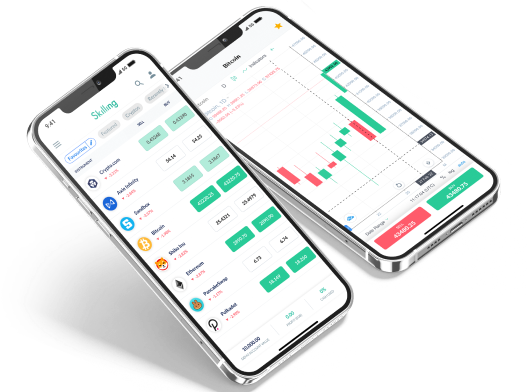Special Purpose Acquisition Companies (SPACs) have emerged as a notable trend in the financial markets. This article explains what SPACs are, discusses their importance for traders, answers common questions, and highlights how Skilling can be a valuable tool for those interested in SPAC investments.
What is SPAC?
A SPAC is a type of company that is formed specifically to raise capital through an initial public offering (IPO) to acquire an existing company. Often referred to as "blank check companies," SPACs have no commercial operations at the time of their IPO. They are created solely to pool funds to finance a merger or acquisition opportunity within a set timeframe, usually two years.
SPACs are an alternative investment option in the financial market, offering both high potential for growth and notable risks. Traders interested in SPACs need to be well-informed about their unique characteristics and market behavior.
Why SPAC is important for traders
For traders, SPACs represent a unique segment of the financial market, offering distinct opportunities that are not typically found in traditional stock investments. These investment vehicles allow traders to get involved in the early stages of a company's public life, often before it has fully established its market presence. This early involvement can lead to significant potential for growth, but it also comes with its own set of risks and uncertainties.
Experience Skilling's award-winning platform
Try out any of Skilling’s trading platforms on the device of your choice across web, android or iOS.
71% of retail CFD accounts lose money.

Understanding the dynamics of SPACs, including their structure, and the reputation of their management teams, and their target acquisition strategies, is helpful for traders looking to capitalize on these opportunities. SPACs present unique opportunities and risks for traders:
- Early investment opportunities: Investing in a SPAC can provide traders with a chance to invest in a company at an early stage, potentially leading to significant returns if the acquisition proves successful.
- Market speculation: The nature of SPACs allows traders to speculate on potential acquisition targets and outcomes.
- Volatility: SPACs can be volatile, especially around key events like the announcement of an acquisition target or the completion of a merger.
FAQs
1. How does a SPAC differ from a traditional IPO?
Unlike traditional IPOs, where a company with existing operations goes public, a SPAC is a shell company at IPO and acquires an operating company later.
2. What happens to a SPAC if it doesn’t acquire a company?
If a SPAC fails to complete an acquisition within the designated timeframe, it is typically dissolved, and the raised funds are returned to the investors.
3. Are SPACs a risky investment?
SPACs can be risky, as their success depends on the acquisition target and the management team's ability to add value.
4. How can I evaluate a SPAC?
Evaluating a SPAC involves researching the track record of its management team, the terms of the SPAC, and potential acquisition targets.
5. What are the fees associated with investing in SPACs?
SPACs typically involve underwriting fees, management fees, and, in some cases, additional costs related to the merger or acquisition process.
6. Can SPACs offer dividends?
It's uncommon for SPACs to offer dividends, especially before an acquisition, as they usually don't have operational businesses generating revenue.
7. How does a SPAC acquisition affect existing shareholders?
After a SPAC acquires a company, the SPAC's shareholders can either retain their shares in the new combined entity or redeem their shares, depending on the terms of the SPAC.
Summary
SPACs offer an alternative route to investing in public companies and come with their own set of opportunities and challenges. For traders, understanding SPACs, staying informed about market developments, and carefully evaluating potential investments are key to success in this area. With platforms like Skilling, traders can access the necessary tools, including webinars, trading articles, and educational resources to help make informed decisions and potentially capitalize on the opportunities that SPACs.
Trade risk-free with a Skilling demo account.











